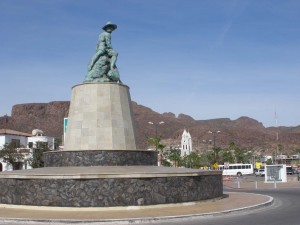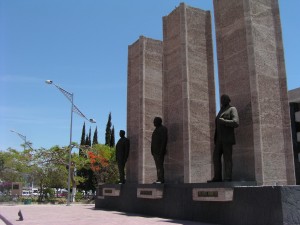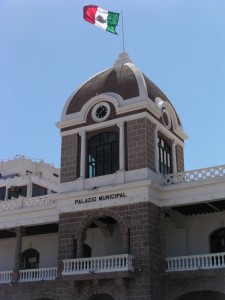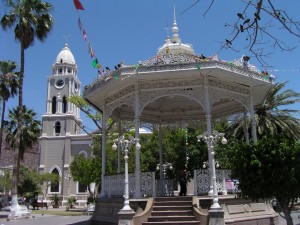
Benito Juarez Statute
Benito Juarez, the 26th president of Mexico, was a Zapotec who didn’t know how to speak Spanish until he was 12. Orphaned at 3, his amazing trajectory reached the head of his country’s Supreme Court before becoming its president, serving five non-concurrent terms (1861-72).
His birthday (March 21) is celebrated as a national public and patriotic holiday, the only individual Mexican to be so honored.
He is one of Mexico’s most reverred presidents, known as its Abraham Lincoln, fighting off the French invasion while Lincoln was embroiled in the Civil War. But his greatest challenge was inward, where his Liberal party fought against the Conservatives who favored a strong role for the Catholic Church in government.
While his country was still reeling from losing much of its northern territory in the war with the United States, Juarez was exiled for three years, first to Cuba, where he worked in a cigar factory, and then to New Orleans where he lived in poverty, preparing for his return to Mexico.
He was a masterful leader, holding the country together through bloody battles inward and outward, finally reining in ecclesiastical power by nationalizing all church property, except actual places of worship. He nationalized cemeteries and placed birth registrations and marriages under civil authority, which had before been records only kept by the church. After guaranteeing religious liberty to all, he also moved the army to civilian control.
He died of a heart attack while in office, in 1872, at the age of 66.
Decades later, in the aftermath of the Mexican Revolution, presidents were constitutionally banned from holding more than one six-year term. They get but one chance to govern and thus are not always campaigning for their next term of power.
While Benito Juarez was only 4-foot-6, his golden statue rises high on a hill in the middle of Guaymas, on Calle Diez between Serdan and Garcia Lopwz. Below it is an inscription with his most famous quote:
“Entre los individuos, como entre las naciones, el respeto al derecho ajeno es la paz.” Often shortened to: “Respect for the rights of others is peace.”
Find this and other photos and stories of San Carlos and its surroundings in “66 Days in San Carlos” by Cathy Henkel. For $20 or 400 pesos, it’s available at Castaway Kids, Vive Real Estate or Sagitario. All proceeds go to the Castaway Kids’ education fund. |







 Fisherman’s Monument
Fisherman’s Monument Three President’s Plaza
Three President’s Plaza Municipal Palace
Municipal Palace Guaymas’ Malecon (Waterfront Boardwalk)
Guaymas’ Malecon (Waterfront Boardwalk) San Fernando Church
San Fernando Church









